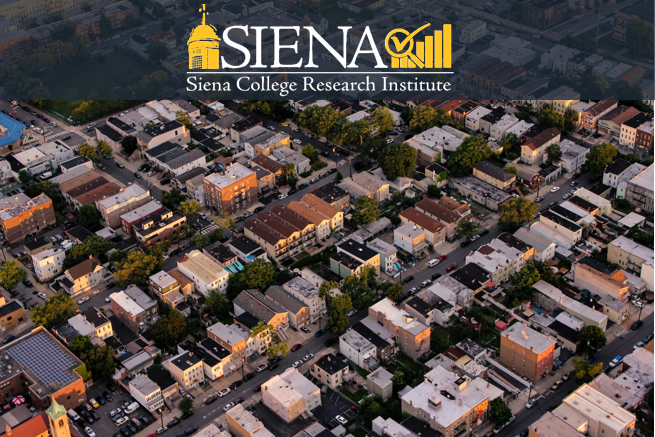New Study Measures Community Quality
NY’ers Graded on Civic Engagement, Health, Economic Wellbeing
Life Chances of Young People, Discrimination Assessed
Loudonville, NY – A new study based upon interviews with 1001 New Yorkers released today by the Siena College Research Institute (SCRI) investigates and establishes benchmarks for community wellbeing in New York. The study measures the quality of services available to citizens, the degree to which citizens are satisfied with life in the community, their participation in civic life, their self-reported physical and mental health, the degree to which the community believes that its young people have the chance to live a productive and fulfilling life, how economically successful the community is as measured through its citizens and the degree to which all citizens regardless of race have an equal and unfettered opportunity to be successful. In short, the study asks, “How healthy are we as a community?”
By combining multiple questions within each of six components of community wellbeing – the quality of local life, civic engagement, personal health both mental and physical, economic wellbeing, the life chances of local youth and the presence of discrimination – the study establishes a score for each of the six areas that communities, civic leaders and citizens can use as a benchmark as they work to enhance community wellbeing.
“Community wellbeing is one of those important but difficult to measure concepts,” according to SCRI Director, Don Levy. “But here we break it up into six areas and using multiple questions arrive at a score for each that we can use to compare one area or one group of people to another and more importantly as a road map to creating healthier communities that are home to more successful New Yorkers.
“Unlike many of our surveys where we report on the frequency of individual opinions or behaviors, this study combines that sort of data into scores that show the degree to which we vary on six aspects of community wellbeing from the goal of living in an ideal state. We score each area with a POP or Percent of the Possible Score both to quantify our current position and to allow us to establish a target,” Levy explains.
-more-
“While reaching the goal in which every single person or respondent answered each question in one or all of the six component areas of community wellbeing as ‘excellent, or most, or all the time’, that is, a POP Score of 100, is never going to happen, what this study does do is provide overall scores and then the line item data which allows us to effectively move towards greater community wellbeing.”
The report provides the following scores: Economic wellbeing 75, Personal health 67, Life chances of young people 64, Operating fairly without prejudice and discrimination 62, Quality of Community 58 and Civic engagement 57.
The survey and analysis is available on the SCRI website, www.siena.edu/scri and at the website of the New York Academy of Medicine, http://promotingprevention.org/nyswellbeingsurvey. This community wellbeing project has grown out of a partnership between SCRI and DataHaven, www.ctdatahaven.org. DataHaven was the moving force behind a study of nearly 17,000 Connecticut residents in 2015 which is about to be replicated by the DataHaven/SCRI partnership in 2018.
The SCRI survey of New York Community Wellbeing was conducted March 5 – May 9, 2017 by random telephone calls to 1001 New York adults via landline and cell phones. Respondent sampling was initiated by asking for the youngest male in the household. Sampling was conducted via a stratified dual frame probability sample of landline and cell phone telephone numbers (both from Survey Sampling International) from within New York State weighted to reflect known population patterns. Data was statistically adjusted by age, race/ethnicity and gender to ensure representativeness. SCRI reports this data at a 95% confidence level with a margin of error of +/- 3.7 points including the design effects resulting from weighting. The Siena College Research Institute, directed by Donald Levy, Ph.D., conducts political, economic, social and cultural research primarily in NYS. SCRI, an independent, non-partisan research institute, subscribes to the American Association of Public Opinion Research Code of Professional Ethics and Practices. For more information, call Dr. Don Levy, Director Siena College Research Institute, at 518-783-2901. For survey cross-tabs: www.Siena.edu/SCRI/research.




